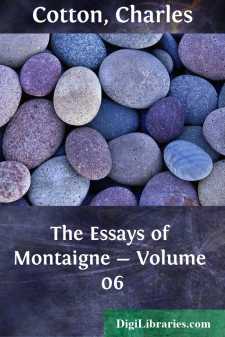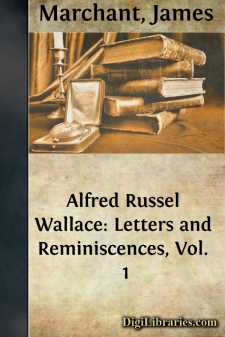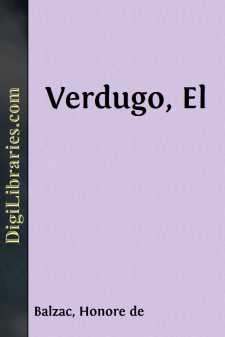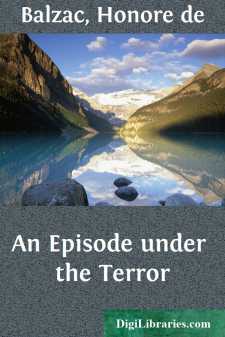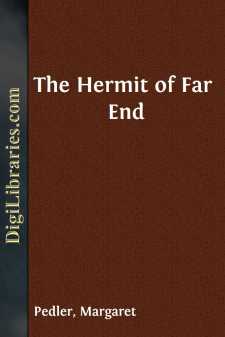Literary Collections
- American 84
- Ancient, Classical & Medieval 14
- Asian 1
- Australian & Oceanian 1
- Canadian 55
- Continental European 121
- English, Irish, Scottish, Welsh 179
- Essays 160
- General 24
- Letters 46
- Middle Eastern 1
Literary Collections Books
Sort by:
by:
Charles Cotton
Having considered the proceedings of a painter that serves me, I had a mind to imitate his way. He chooses the fairest place and middle of any wall, or panel, wherein to draw a picture, which he finishes with his utmost care and art, and the vacuity about it he fills with grotesques, which are odd fantastic figures without any grace but what they derive from their variety, and the extravagance of their...
more...
JOHN SMITH Born in England in 1579, died in 1631; served against the Turks, captured, but escaped and returned to England in 1605; sailed for Virginia in 1606, and helped to found Jamestown; captured by Indians and his life saved by Pocahontas the same year; explored the Chesapeake to its head; president of the Colony in 1608; returned to London in 1609; in 1614 explored the coast of New England;...
more...
by:
James Marchant
INTRODUCTION In Westminster Abbey there repose, almost side by side, by no conscious design yet with deep significance, the mortal remains of Isaac Newton and of Charles Darwin. "'The Origin of Species,'" said Wallace, "will live as long as the 'Principia' of Newton." Near by are the tombs of Sir John Herschel, Lord Kelvin and Sir Charles Lyell; and the medallions in...
more...
THE COURTING OF T'NOWHEAD'S BELL, By J. M. Barrie For two years it had been notorious in the square that Sam'l Dickie was thinking of courting T'nowhead's Bell, and that if Little Sanders Elshioner (which is the Thrums pronunciation of Alexander Alexander) went in for her, he might prove a formidable rival. Sam'l was a weaver in the tenements, and Sanders a coal-carter,...
more...
by:
Honore de Balzac
EL VERDUGO The clock of the little town of Menda had just struck midnight. At that moment a young French officer, leaning on the parapet of a long terrace which bordered the gardens of the chateau de Menda, seemed buried in thoughts that were deeper than comported with the light-hearted carelessness of military life; though it must be said that never were hour, scene, or night more propitious for...
more...
by:
John Galsworthy
Part IIAt the door of St. George's registry office, Charles Clare Winton strolled forward in the wake of the taxi-cab that was bearing his daughter away with "the fiddler fellow" she had married. His sense of decorum forbade his walking with Nurse Betty—the only other witness of the wedding. A stout woman in a highly emotional condition would have been an incongruous companion to his...
more...
by:
Horatio Nelson
LETTER I. Vanguard, off Malta, Oct. 24, 1798. MY DEAR MADAM, After a long passage, we are arrived; and it is as I suspected—the ministers at Naples know nothing of the situation of the island. Not a house or bastion of the town is in possession of the islanders; and the Marquis de Niza tells me, they want arms, victuals, and support. He does not know, that any Neapolitan officers are in the...
more...
by:
William Banks
CHAPTER I "What! never been to a political meeting; an' you living in a city. Back to the hamlet for you, boy; you're lost. "You're not? You know where you live, and could find your way home in the dark? My, but you're cert'nly the quick actor when it comes to thinking. "Sure I've been to more'n a dozen political meetin's. Ain't my Pa a member er...
more...
by:
Honore de Balzac
AN EPISODE UNDER THE TERROR On the 22nd of January, 1793, towards eight o'clock in the evening, an old lady came down the steep street that comes to an end opposite the Church of Saint Laurent in the Faubourg Saint Martin. It had snowed so heavily all day long that the lady's footsteps were scarcely audible; the streets were deserted, and a feeling of dread, not unnatural amid the silence,...
more...
by:
Margaret Pedler
PROLOGUE It was very quiet within the little room perched high up under the roof of Wallater's Buildings. Even the glowing logs in the grate burned tranquilly, without any of those brisk cracklings and sputterings which make such cheerful company of a fire, while the distant roar of London's traffic came murmuringly, dulled to a gentle monotone by the honeycomb of narrow side streets that...
more...


